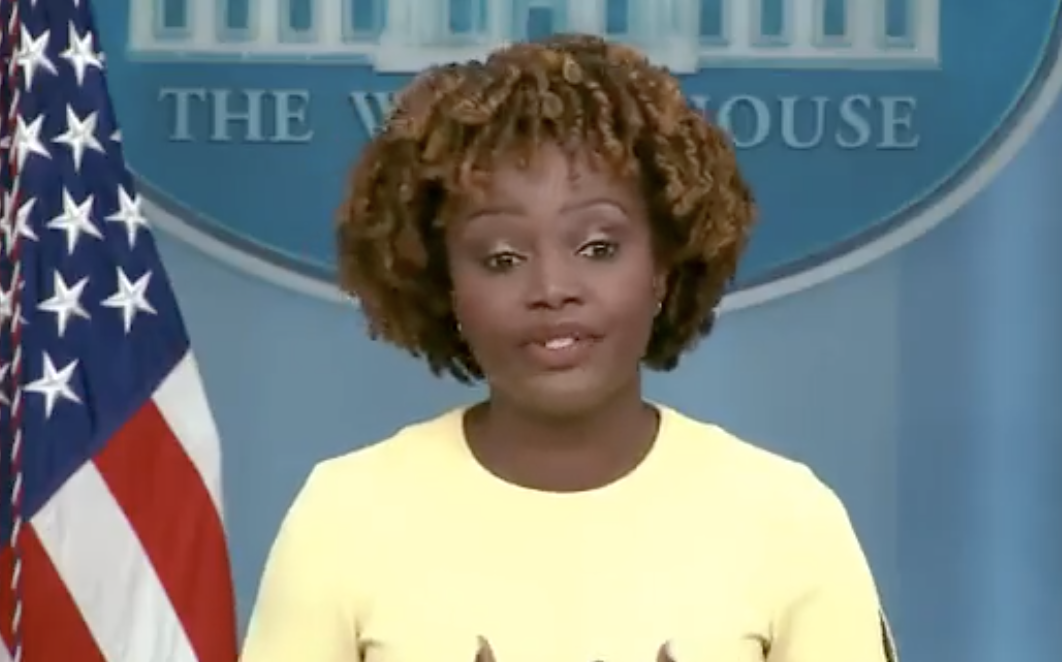Politics
Watch: Jean-Pierre Says January 6th Protests Are On Par With The Civil War

Leading the charge of absolute insanity today was White House Press Secretary Karine Jean-Pierre, who, when discussing the January 6th Committee’s criminal referrals, declared that the January 6th trespass in the “People’s House” was “the worst attack on our democracy since the Civil War.”
Watch that here:
WH press sec.: "What we saw on January 6th was the worst attack on our democracy since the Civil War." pic.twitter.com/mkE8y6z4c5
— The Post Millennial (@TPostMillennial) December 19, 2022
As you can hear in the clip, KJP said, “We’ve been very clear from the beginning that what we saw on January 6 was the worst attack on our democracy since the Civil War and the President has been very clear our democracy continues and remains under threat.”
KJP’s comments on the January 6th event came after Rep. Jamie Raskin of the January 6th Committee announced that the committee would be making four criminal referrals of former President Trump to the DOJ over his role in the events that took place on January 6th. Those four criminal charges include conspiracy to defraud the United States; obstruction of an official proceeding; conspiracy to make a false statement; and inciting, assisting, or aiding and comforting an insurrection against the country.
These criminal referrals aren’t coming out of the blue. News about them came out earlier in December, and at that time, Rep. Adam Schiff was asked by NPR’s Steve Inskeep about potential criminal referrals earlier in December, with Inskeep asking “we just heard about possible criminal referrals for people who refused to cooperate. So I understand that. Could you possibly also refer people for specific crimes on or about January 6?”
Schiff responded by saying, “We certainly could, and this is what we’re discussing as we go into the last days of our work on this important investigation. And that is, what would the impact of our referrals be if we make referrals, against whom and for what offenses? How much should we detail the evidence, knowing that the Justice Department has sources of evidence that we don’t, that it was able to enforce certain subpoenas and compel testimony that we have not been able to? So in some ways, I think the information we provide will exceed that of the department. In other areas, they have more evidence than we do.”
Inskeep then noted that the situation is very political, asking, “Isn’t this ultimately a political as well as a legal decision, by which I mean, you have to decide, not only do we think that this is a criminal act, but also does it benefit the country in some way to call for this prosecution?”
Schiff, in response, said, “That’s exactly right. There’s no requirement that Congress need one to find evidence for criminality, make referrals, but there is a long practice of Congress doing that. Now, generally, those referrals involve crimes against the institution of the Congress, so people who are refusing to testify or people who commit perjury when they testify. But here you have the ultimate crime against Congress. And that was a violent attack on a Congress doing its work to certify a presidential election. So it’s consistent with what we’ve done in the past if we go forward. At the same time, it’s a whole new level of seriousness in terms of what we’d be referring.“

